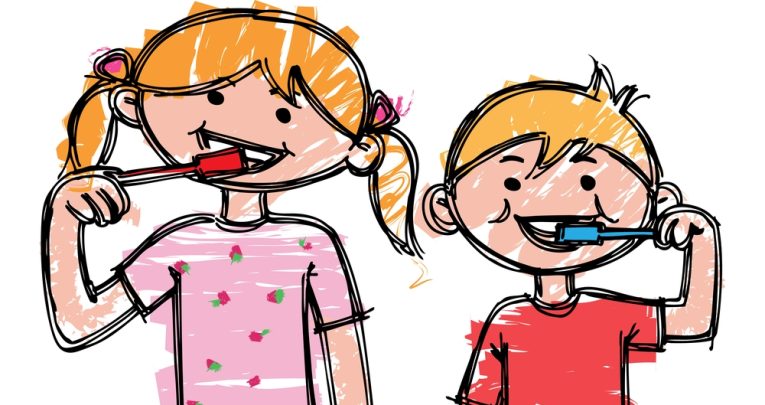Here’s What Settings Can Do To Help Children Brush Up On Their Oral Hygiene

There’s an urgent need to promote good oral health in young children, and early years settings are ideally placed to make a difference…

Brush twice a day, avoid consuming large quantities of sugary food and drink and don’t miss your dental check ups – the recipe for healthy teeth is simple, but for some reason the message doesn’t seem to be getting through. There is, by all accounts, a national crisis in children’s oral health. The problem is particularly acute in areas of social deprivation, and resources are being deployed to try to make a difference. In August last year, the Royal College of Surgeons recommended that parents should supervise their children brushing their teeth up to the age of 14 (dental disease is the most common reason for children’s admission to hospital; 25,000 have teeth extracted under anaesthetic every year).
Meanwhile, researchers at Plymouth University Peninsula School of Dentistry have received funding of close to £150,000 from the Medical Research Council to carry out a pilot study developing an intervention linking dental nurses to young mothers in areas of disadvantage. It is hoped that this will help promote oral health awareness to those who may be unaware of the dangers, benefiting children, families and the wider community.
Take action
But you don’t need a lot of funding or media clout to make a difference – it’s just about getting the message across in your own setting. The following advice from The British Dental Health Foundation will give you the perfect start…
1. Early years settings should encourage parents to take their children to the dentist as soon as their teeth start to appear This gets them used to the sights, smells and sounds of the dental surgery and builds familiarity with the dental team. Having a dental professional visit the setting can also help.
2. To emphasise the importance of their dental health, children should be encouraged to discuss what their mouth is for and why it’s crucial to keep it – and their teeth – healthy Using a mirror and asking them what they see in their mouths is a good way to initiate this. Ask children to count their teeth and describe what they are used for, and then relate this to why it is important to look after them.
3. Key to developing good early behaviour is instilling a very simple core set of points ‘Brush your teeth for two minutes before you go to bed and one other time during the day’ is the type of simple message that can be displayed on posters that children will recognise.
4. Using models and props such as puppets to demonstrate to children how to properly brush their teeth can be a fun and interactive way to get them using simple dental health behaviours Demonstrate how to properly brush the model’s teeth, then get the children to do the same themselves.
5. Get children to practise correct brushing techniques Ask them to bring their own toothbrush or provide them with one, then mime the brushing routine. Use an egg timer or toothbrush timer to enable children to start to understand the amount of time they should be dedicating to brushing.
6. Issue children with a reward chart that they can take home This will enable them to build upon what has been learned in the setting while at home, and also gets parents involved in the activity.
7. To demonstrate the relationship between diet and dental health, put together an example of a ‘healthy’ and ‘unhealthy’ plate Get the children to identify which is which and then go through each item individually, explaining why it’s good or bad for their teeth.
8. Storytelling is an effective way to encourage routine behaviour Get the children to tell their own stories of going to the dentist, and about how dental health is incorporated into their daily lives, such as their bedtime routine.
9. Getting the children to identify the tools to look after their teeth also gets them familiar with them With a little encouragement, they should be able to recognise when a toothbrush becomes too worn to be effective and how much toothpaste they should be using.
The British Dental Health Foundation is an independent charity dedicated to promoting good oral health; Its Dental Buddy resource is free to access and includes downloadable materials suitable for children aged 3 to 5 years. For further information, visit www.dentalhealth.org or follow @dentalhealthorg








